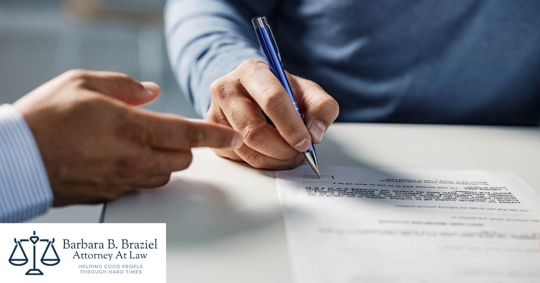Navigating the financial world can be complex, especially when the legal and emotional ties of co-signing a loan are involved. If you're a co-signer or considering becoming one, understanding how bankruptcy impacts your responsibilities is crucial. By learning about your obligations, risks, and the protections available, you can make more informed decisions and safeguard your financial future.
Understanding the Role of a Co-Signer in Bankruptcy
When you co-sign a loan, you agree to take responsibility if the primary borrower fails to pay. This isn't just a theoretical obligation; it's a legal and financial commitment. A default could mean you're liable to cover payments, and it could lead to collection actions like wage garnishment or lawsuits. Before agreeing to co-sign, evaluate the borrower's financial stability and review the loan terms to understand the potential risks.
Legal Obligations and Risks for Co-Signers
Bankruptcy adds another layer of complexity. Under Chapter 7 bankruptcy, for example, the borrower's debts may be discharged, but creditors can still pursue co-signers for repayment. Chapter 13, on the other hand, might include a repayment plan that affects co-signer obligations. Terms like "automatic stay" and "discharge" help protect borrowers during bankruptcy but don't permanently relieve co-signers of their financial responsibility. Co-signers must understand the type of bankruptcy filed and how it impacts their liability.
Financial Impacts on Co-Signers
A borrower's bankruptcy can harm a co-signer's credit score if the loan goes into default. This drop in credit can make it harder to secure loans or get favorable interest rates in the future. Beyond credit damage, co-signers may also face aggressive collection efforts. Creditors can seek payment through wage garnishment, seizing funds from bank accounts, or placing liens on personal property.
Options and Protections for Co-Signers
Co-signers have some recourse during the bankruptcy process. Seeking legal guidance ensures you're informed about your rights and options. Bankruptcy attorneys can help evaluate reaffirmation agreements, which may allow co-signers to negotiate manageable terms while protecting collateral tied to the loan. If you're considering co-signing in the future, protective clauses that limit your liability or require the borrower to maintain insurance can provide greater security.
Steps to Protect Your Financial Well-Being
Should the borrower file for bankruptcy, keep communication open with creditors to explore payment adjustments. Regularly monitoring your credit report can help spot inaccuracies early and prevent further financial damage.
Don't face this process alone. At Barbara B. Braziel Attorney At Law, we specialize in supporting co-signers and borrowers in navigating bankruptcy's complexities. Our team provides straightforward advice and tailored solutions to help you regain control of your financial future. Contact us at (833) 522-1069 today for compassionate, professional assistance!

